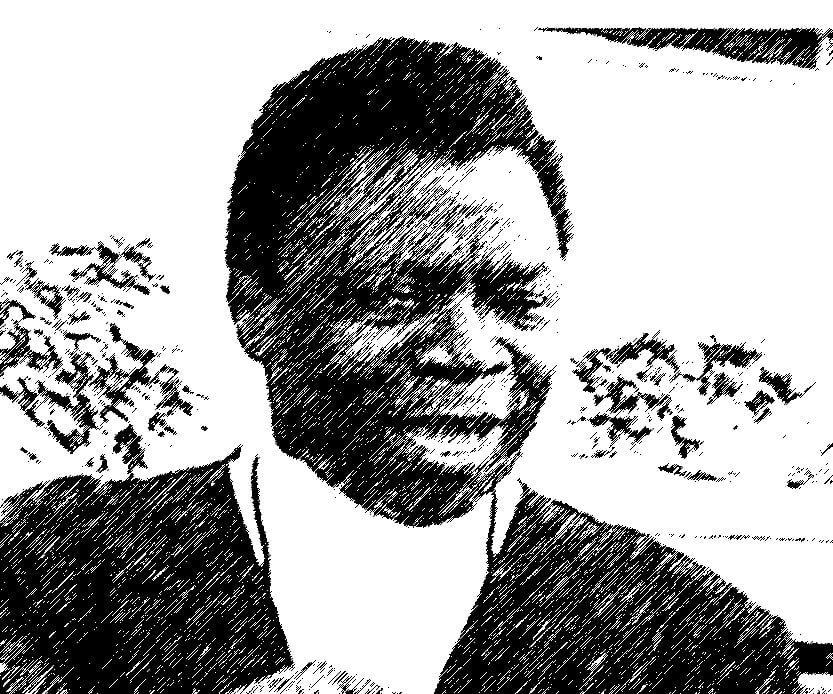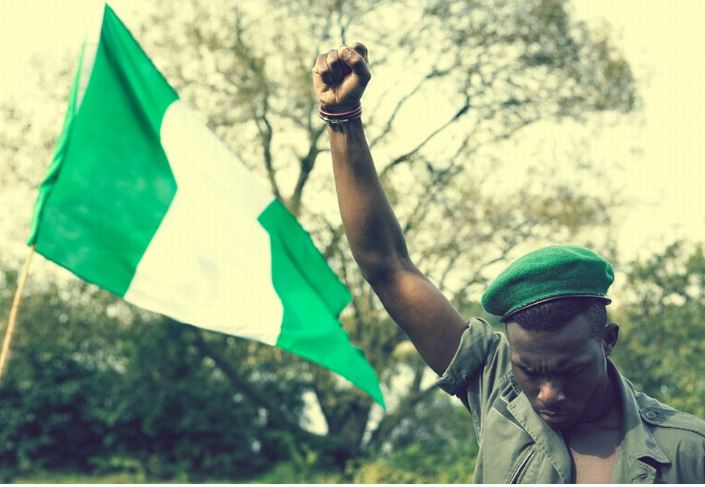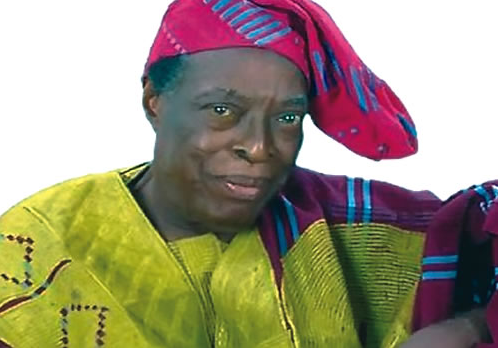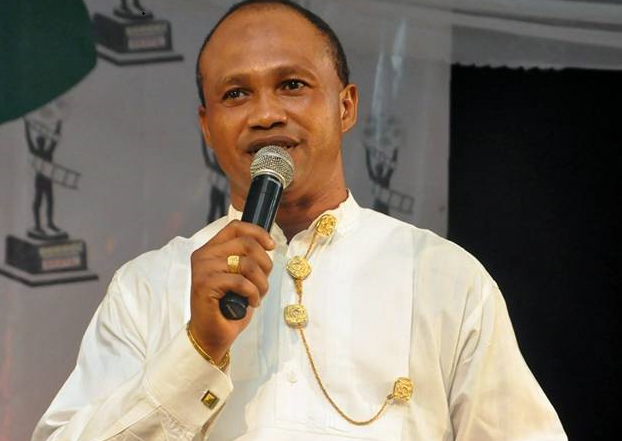Gabriel Olusoga Onagoruwa did the unusual in 1994: he disowned eight decrees issued by the Abacha government which he was serving as the attorney-general. The response was predictable: he was promptly fired by the military dictator. What followed next was also predictable but shocking: his son, also a lawyer, was shot dead by men who reportedly escaped in the vehicle of a serving senior military officer.
And Onagoruwa suffered a stroke that left him paralysed, compounded by the death of his wife while still trying to make sense out of the misfortune that would define the last quarter of his life. He was 80 when he died on Friday morning, but he would wish he had a happier ending.
That Onagoruwa would be remembered more for serving in the government of Sani Abacha is an eternal disservice to his pedigree: he made his name as a human rights activist who looked at the military eyeball-to-eyeball in the days when the pastime of the jackboots was silencing dissenting voices by any means available, preferably through the barrel of the gun.
DENIED SAN RANK FOR DECADES
Born in Odogbolu, Ogun state, in 1937, Onagoruwa studied law at the the University College London, where he graduated in 1964, and did his LLM and PhD in constitutional Law in the same university. In 1971, he was called to the Nigerian bar, three years after he completed his PhD.
Advertisement
He was a member of the Inner Temple of the English bar and was belatedly made a senior advocate of Nigeria (SAN) in 2014 after being denied, allegedly for political reasons, by the legal practitioners privileges committee (LPPC), the body that awards the rank to lawyers.
Femi Falana, lawyer and human rights activist, narrated how Onagoruwa was denied the esteemed rank for decades in an article in wrote in 2014.
He wrote: “Notwithstanding their enormous contributions to legal development the Legal Practitioners Privileges Committee (LPPC) resolved never to confer the title of SAN on Chief Fawehinmi and Dr. Onagoruwa. Hence, their applications for the rank were consistently rejected on the spurious ground that they were not “fit and proper persons” to be admitted to the inner bar.
Advertisement
“However, the legal establishment was exposed to self inflicted embarrassment when Dr. Onagoruwa was appointed the Attorney-General of the Federation and Minister of Justice in December 1993 by the Sani Abacha junta. Pursuant to the guidelines which had been drawn up by the Legal Practitioners Privileges Committee since 1985, Dr. Onagoruwa ought to have been conferred with the rank by virtue of his new appointment.
“But the Committee of senior judges and lawyers headed by the then Chief Justice of the country, the late Justice Mohammed Bello, decided to breach the law and refused to confer the rank on the Justice Minister. In a bid to justify its unjust decision the Committee instigated the Lagos State Ministry of Justice to approach the Supreme Court to set aside the verdict of the Court of Appeal which had dismissed the charge of stealing brought against Dr. Onagoruwa.
“Upon being served with the hearing notice Chief Fawehinmi invited me for a meeting to discuss the frivolous appeal. Since the human rights community had vehemently opposed Dr. Onagoruwa’s appointment, Chief Fawehinmi asked whether we should handle the appeal. Since our opposition to the Minister’s appointment was on solid principle, I made it clear to him that if the appeal was allowed in the circumstance the state would appeal against all decisions in favour of the members of the pro-democracy movement.
“As Chief Fawehinmi had parted ways with Dr. Onagoruwa over his controversial appointment, I was given the task of informing him of the notice of the appeal and our decision to challenge the appeal on his behalf. I did and the Minister expressed dismay that his opponents were running from pillar to post in the bid to have him convicted. At the Court of Appeal where the motion for extension of time to file the appeal to the apex court was heard Chief Fawehinmi was in his element. The lawyer urged the Justices of the Court of Appeal not to accede to the dangerous prayer of the cabal that had ‘hijacked the legal profession for dubious objectives’.
Advertisement
“In a short ruling the court indicted the applicant and dismissed the matter with substantial costs. Notwithstanding that the application was dismissed, Dr. Onagoruwa was denied the rank. In a move which smacks of institutionalized injustice lawyers who had been short-listed for the award in 1994 had their hope dashed as the entire exercise was cancelled. Thus, they were collectively punished along with Dr. Onagoruwa!”
CONFRONTED — AND LATER SERVED — THE MILITARY
A renowned constitutional lawyer, Onagoruwa was a thorn in the flesh of the military regimes of Muhammadu Buhari and Ibrahim Babangida.
He consistently questioned the legality of military regimes and challenged the arrest and detention of activists and democracy campaigners.
Some of the activists he represented in court were Ken Saro-Wiwa, Minere Amakiri, Tai Solarin, Gani Fawehinmi, Beko Ransome-Kuti and Falana, many of whom were detained under laws that ousted the jurisdiction of courts.
Advertisement
On November 25, 1993, he did the unthinkable: he accepted to be minister under a military government. The June 12 election had been annulled by the military, plunging the country into a crisis and leading to another coup staged by Abacha.
Onagoruwa would be expected to opposed the Abacha government, but he instead took up the position of minister of justice and attorney-general, allegedly at the prompting of his Odogbolu kinsman, Oladipo Diya, a lt. general, who was Abacha’s No. 2 man. Onagoruwa offended the human rights community by taking up the job, but he promised he was going to be a reformer in government and would never allow any law that would oust judicial jurisdiction.
Advertisement
In September 1994, the military rolled out eight new decrees — with ouster clauses.
Onagoruwa, now wearing the cap of an activist, addressed a press conference to disown the decrees, which he said would “sweep away our liberties”. He threatened to resign, saying he was not party to the new laws giving the military rulers wide powers of arrest and barring any challenge to their actions through the courts.
Advertisement
The laws were obviously designed to cage increasing public opposition to Abacha’s government with the detention of MKO Abiola, the presumed winner of the June 12 election, and several other activists.
Onagoruwa was removed as minister on September 12, 1994, and Michael Agbamuche, 74 at the time, was announced as his replacement.
Advertisement
THE CASE OF TURNER OGBORU
Before publicly disowning the decrees, Onagoruwa had also committed another offence, as it were.
According to Ebenezer Babatope, who was his colleague in the Abacha cabinet, Onagoruwa had also played the role of a human rights activist in government when he endorsed the release of Turner Ogboru from detention following a court order.
Babatope wrote: “Turner Ogboru had been arrested, tried and imprisoned by the General Ibrahim Babangida regime after the abortive coup attempt of April 22, 1990, Turner’s brother, Great Ogboru, had been fingered by the IBB regime as having financed the 1990 coup. Turner Ogboru was subsequently arrested by security forces and put on trial.
“Immediately, a High Court Judge granted the application for freedom of Turner Ogboru, which was filed by his lawyer, Femi Falana, Dr. Olu Onagoruwa, the Attorney-General sent letters out to the late Alex Ibru, the then Minister for Internal Affairs, and Alhaji Ibrahim Coomasie, the Inspector General of Police directing the immediate release of Turner Ogboru as directed by the Court. Alex Ibru complied immediately with the Attorney-General’s instructions by ordering the release of Turner Ogboru from prison custody.
“A Provisional Ruling Council meeting was held the next day of Ogboru’s freedom. Towards the end of the meeting, the Inspector-General of Police, Alhaji Coomasie had drawn the attention of the PRC meeting to the letter of Dr. Olu Onagoruwa ordering the release of Turner Ogboru. The late Head of State, General Sani Abacha was said to have been so enraged to learn of the subsequent release of Turner Ogboru that he was said to have told Olu Onagoruwa and the late Alex Ibru that what they had done by releasing Ogboru was worse than treasonable felony.
“Turner Ogboru was immediately rearrested after the PRC meeting and returned to prison. It is generally believed that the releases of Turner Ogboru was one of the sins Olu Onagoruwa had committed leading to the execution of his son Toyin Onagoruwa in December 1996.”
THE KILLING OF TOYIN ONAGORUWA
Toyin, who had a PhD in law, worked with the National Intelligence Agency (NIA) and was described as a “very intelligent boy”. With his father now treated as an opponent of Abacha, no one in the family was safe any more.
In 1996, there was a spate of assassination of perceived enemies of Abacha. Among those assassinated were Alfred Rewane, who was accused of funding the anti-Abacha NADECO; Kudirat Abiola, wife of MKO; Sola Omatsola, former chief security officer of Murtala Muhammed; and Bagauda Kaltho, a journalist believed to have been framed as having planted a bomb at a hotel in Kaduna.
Unsuccessful attempts were made on the lives of Alex Ibru, founder of The Guardian and former minister in the Abacha cabinet, and Abraham Adesanya, leader of the Afenifere and a NADECO leader as well.
The case of Toyin shocked the nation: he was gunned down in front of his house in Yaba suburb at night. Onagoruwa painted a graphic picture to the Oputa truth commission in 2000 on the killing of the young lawyer.
Abacha’s security operatives, Barnabas Mshelia (aka Sgt. Rogers) and Frank Omenka of the Directorate of Military Intelligence (DMI), murdered his son, he alleged.
He narrated: “On December 18 while I was asleep, my daughter woke me up to say that something was happening in my compound. When I looked outside, I saw some young men who were pushing my lawyer son, Oluwatoyin, out of the compound. Later, we saw Toyin trying to free himself from the two men who came in a white Mercedes Benz car with registration number BB844, SMK.”
He said that his son was first shot at the back before he was finally shot in his eye.
Onagoruwa pointed accusing fingers at Ibrahim Coomassie, the inspector general of the police in 1994, and Laide Laoye, a brigadier. He said Laoye’s white Mecedez Benz was the car used by the assassins.
“Coomassie and Laoye have hands in this evil machination. Coomassie took me to court claiming N500 million as damages, he should come to this panel and explain why Nigerian citizens were being murdered indiscriminately during his era,” he said.
He accused an assistant commissioner of olice, Anwsa Bello, attached to the Federal Criminal Investigation Department (FCID), Adeniji Adele Annex, of having a fore knowledge of his son’s death.
Onagoruwa told the panel that Abacha sent two delegations, led by Diya and Agbamuche, to commiserate with the family.
Laoye denied the allegation, saying Onagoruwa had been maligning his name since 1996 and “this is the only opportunity to clear my name”.
ONAGORUWA VS FAWEHINMI
Friends and comrades they were, but as soon as Onagoruwa agreed to serve Abacha in 1993, Fawehinmi suspended their relationship and publicly criticised him. Onagoruwa was ostracised by the human rights community.
In 2006, Onagoruwa wrote a book, “A rebel in General Abacha’s government”, in which he disparaged Fawehinmi and made a series of allegations that called to question the famous activist’s integrity and sincerity.
He accused Fawehinmi of always playing to the gallery, suggesting that he liked being seen as championing the cause of the law without actually contributing anything to the society in general. He said Fawehinmi only got involved in things that would promote his his name “and enhance his stature in the eyes of his fans”.
He dropped a bombshell: Fawehinmi, he said, profited from the Buhari military administration in 1984-85. He alleged that Fawehinmi’s house in London was bought with “help” from the Buhari’s administration, suggesting further that Fawehinmi would have been the attorney-general under Buhari but for the Babangida coup of 1985.
Fawehinmi famously appeared before military tribunals when Buhari was head of state despite the decision of the Nigerian Bar Association (NBA) because they were “unconstitutional”.
Fawehinmi responded to Onagoruwa immediately with a book, “The lies and lies of Dr. Olu Onagoruwa”.
He wrote: “Dr Olu Onagoruwa, in his book, shamelessly lied against me that General Mohammadu Buhari, as Head of State, helped me acquire my house in London. General Buhari’s military administration lasted from Sunday, 1st January, 1984 to Monday, 26th August, 1985 when the military administration was toppled in another coup led by General Ibrahim Babangida.
“I did not buy any house or any landed property of any description or of any type in London between 1983 and 1985. In 1980, four years before Buhari military administration came to power, l bought an apartment in Croydon, London. It was 15 Willow Mount.
“Dr Olu Onagoruwa’s wife, Mrs Titi Onagoruwa and her children visited my wife (Mrs Ganiat Bukun Fawehinmi) and myself in this property in 1981. She wore a red skirt and blouse. That was three years before Buhari’s military administration came to power. It is therefore surprising that Olu Onagoruwa could concoct a horrible falsehood as he shamelessly did in his book.”
Suffice it to say their relationship did not end well. If they meet in the world beyond, maybe be they would certainly kiss and make up. But the Nigeria of their dream is still far from reality.






